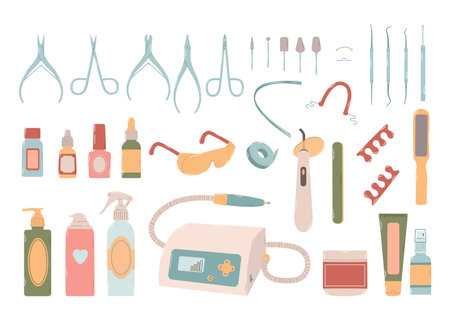Understanding Your Motivations
Before embarking on any cosmetic procedure, it is crucial to truly understand your motivations. Ask yourself what is driving your desire for change—are you hoping to boost your self-confidence, address a specific concern, or perhaps respond to social pressures? In the UK, where individual expression is celebrated but subtlety and authenticity are also highly valued, being honest with yourself about these reasons sets the foundation for a positive experience. Take time to consider both emotional and practical factors. For example, are you seeking a minor tweak to enhance your natural features or expecting a dramatic transformation? Reflecting deeply helps ensure that your expectations align with what is realistically achievable. Remember, undergoing cosmetic changes should be a personal choice made for your own wellbeing, not simply to fit in with trends or meet someone else’s standards. Open conversations with trusted friends or professionals can provide valuable perspectives as you clarify your intentions and set the stage for a fulfilling outcome.
2. The Consultation: Open Dialogue with Practitioners
When considering any cosmetic procedure, the initial consultation is a pivotal moment in your journey. In the UK, practitioners adhere to stringent standards of care and professionalism, ensuring patients receive clear, honest information before making decisions. Open dialogue during this stage lays the foundation for realistic expectations and satisfactory outcomes.
British standards emphasise transparency and mutual respect between patient and practitioner. This approach fosters trust, empowering you to ask questions and voice concerns without hesitation. A thorough consultation should always include:
| Consultation Element | What to Expect (UK Standards) |
|---|---|
| Medical History Review | Your practitioner will enquire about your health background to assess suitability and minimise risks. |
| Discussion of Desired Outcomes | You are encouraged to describe your goals candidly, while the practitioner provides professional insight into what’s achievable. |
| Explanation of Procedures | A detailed account of techniques, recovery, costs, and potential side effects is provided, allowing for informed consent. |
| Time for Questions | A respectful space is given for you to ask anything—from technical details to aftercare—ensuring clarity and comfort. |
Etiquette in British consultations also values punctuality, confidentiality, and empathy. By engaging in an open, judgement-free conversation, both parties can collaboratively determine whether the treatment aligns with your personal expectations and lifestyle. Remember: a reputable practitioner will never promise perfection but will guide you towards safe, satisfying results grounded in honesty.

3. Recognising Limitations of Procedures
When considering cosmetic procedures, it’s crucial to approach your journey with a clear understanding of what these treatments can and cannot deliver. In the UK, practitioners are guided by strict standards set by bodies such as the General Medical Council (GMC) and the Care Quality Commission (CQC). These guidelines prioritise patient safety, ethical conduct, and informed consent, ensuring you receive honest advice about potential outcomes.
While cosmetic treatments can enhance your appearance and boost your self-confidence, they do have inherent limitations. For example, non-surgical options like fillers or anti-wrinkle injections can refresh and rejuvenate your look, but they may not replicate the dramatic results possible with surgical interventions. Even then, surgery itself has boundaries; it can improve or refine features but cannot always achieve perfection or guarantee specific results. Factors like genetics, skin quality, age, and lifestyle play significant roles in the final outcome.
UK practitioners will typically emphasise that cosmetic procedures are meant for enhancement rather than complete transformation. During consultations, you should expect open discussions about likely results and risks involved. Reputable professionals will avoid promising unrealistic changes or comparing you to idealised celebrity images. Instead, their goal is to help you make well-informed decisions rooted in self-acceptance and realistic goals.
Remember: the most successful cosmetic journeys are those where expectations are managed with honesty and care. By recognising the limitations of each procedure and trusting in qualified UK experts, you’re empowering yourself to make choices that celebrate your individuality while respecting what is safely achievable.
4. Exploring Risks and Recovery
When considering cosmetic procedures, it is vital to approach the journey with both optimism and realism. Every treatment, no matter how minimally invasive, carries certain risks and requires a recovery period that varies from person to person. In the UK, regulatory standards are stringent, ensuring patient safety and transparency. It’s important to fully understand what to expect before making any decisions.
Potential Side Effects
Cosmetic procedures can result in a range of side effects, which are generally temporary but should not be overlooked. Common reactions include swelling, bruising, redness, or mild discomfort at the treatment site. More invasive interventions may carry increased risks such as infection or scarring. Discussing these possibilities openly with your practitioner helps set realistic expectations and fosters a trusting relationship.
Downtime and Recovery Timeframes
Recovery varies depending on the procedure and individual factors like age, skin type, and general health. Below is an overview of typical downtime for some popular cosmetic treatments in the UK:
| Treatment Type | Common Side Effects | Typical Downtime |
|---|---|---|
| Botox / Fillers | Bruising, swelling | 1-3 days |
| Chemical Peels | Redness, peeling | 5-7 days |
| Surgical Procedures (e.g., Rhinoplasty) | Swelling, bruising, pain | 2-4 weeks |
| Laser Treatments | Redness, sensitivity | 1-7 days |
The Importance of Informed Consent
In the UK, informed consent is a cornerstone of ethical practice in aesthetics. Before proceeding with any treatment, practitioners are required by law to provide clear information about all potential risks, benefits, alternatives, and expected outcomes. This ensures you have the opportunity to weigh your options carefully and make a decision that aligns with your personal goals and values.
Aftercare: Nurturing Your Results
Proper aftercare is essential to achieving optimal outcomes and minimising complications. Practitioners will provide tailored advice based on your specific treatment—ranging from avoiding sun exposure to following a gentle skincare routine during recovery. Adhering closely to these guidelines supports healing and helps you enjoy your results safely and confidently.
5. Setting Achievable Goals
When considering cosmetic procedures, it is vital to approach your journey with a mindset anchored in realistic and achievable goals. Rather than aspiring to an idealised version seen in magazines or social media, focus on what is genuinely attainable for you as an individual. Begin by identifying specific changes that would enhance your natural features, rather than aiming for dramatic transformations. For example, instead of hoping to look like a particular celebrity, think about how subtle improvements can boost your confidence and sense of self.
It can be helpful to discuss your motivations and expectations openly with your practitioner during the consultation process. A reputable professional will guide you towards outcomes that are not only safe but also harmonious with your unique facial structure and personal style. Remember, gradual enhancement often yields the most satisfying results in the long term. By setting practical goals and understanding the limitations of each procedure, you are more likely to feel content with the outcome and appreciate the incremental improvements over time.
Keep in mind that true satisfaction stems from feeling comfortable and confident in your own skin. Embrace the journey as an opportunity for gentle self-improvement, rather than a quest for perfection. This approach not only helps manage expectations but also fosters a healthier relationship with yourself throughout the process.
6. Support Networks and Mental Wellbeing
Undergoing a cosmetic procedure is not only a physical transformation, but also an emotional journey. It is entirely natural to experience a mix of excitement, anxiety, and even moments of doubt along the way. In the UK, mental wellbeing is increasingly recognised as an essential part of any self-improvement process, including cosmetic enhancements. To truly set realistic expectations and manage outcomes effectively, it’s important to lean on support networks—whether that’s your friends, family, or professional counselling services available locally.
The Power of Open Conversations
One of the most empowering steps you can take is to talk openly about your hopes and concerns with those you trust. Sharing your thoughts with friends or loved ones often brings reassurance and perspective. They can provide encouragement when nerves set in or offer honest opinions that help ground your expectations. Remember, seeking advice or simply expressing how you feel does not make you less independent—it shows strength and self-awareness.
Professional Support in the UK
If you find yourself struggling with anxiety or uncertainty before or after your procedure, don’t hesitate to reach out for professional support. The UK offers a range of mental health services tailored to individuals navigating appearance-related decisions. Whether through your local GP, NHS psychological support, or private counsellors who specialise in body image concerns, there is help available. Engaging with these resources can foster resilience and maintain a healthy outlook throughout your cosmetic journey.
Building Lasting Confidence
True confidence comes from within, cultivated by understanding yourself and embracing both the changes you seek and the person you already are. By surrounding yourself with positive influences and utilising expert guidance when needed, you create a strong foundation for lasting self-assurance—regardless of the outcome.
Your Wellbeing Matters Most
As you consider or undergo cosmetic procedures, prioritise your mental wellbeing just as much as the physical results. Involving your support network and using trusted UK-based services ensures that you are cared for holistically. After all, setting realistic expectations isn’t just about appearances; it’s about nurturing a positive mindset and celebrating every step forward on your unique path.


